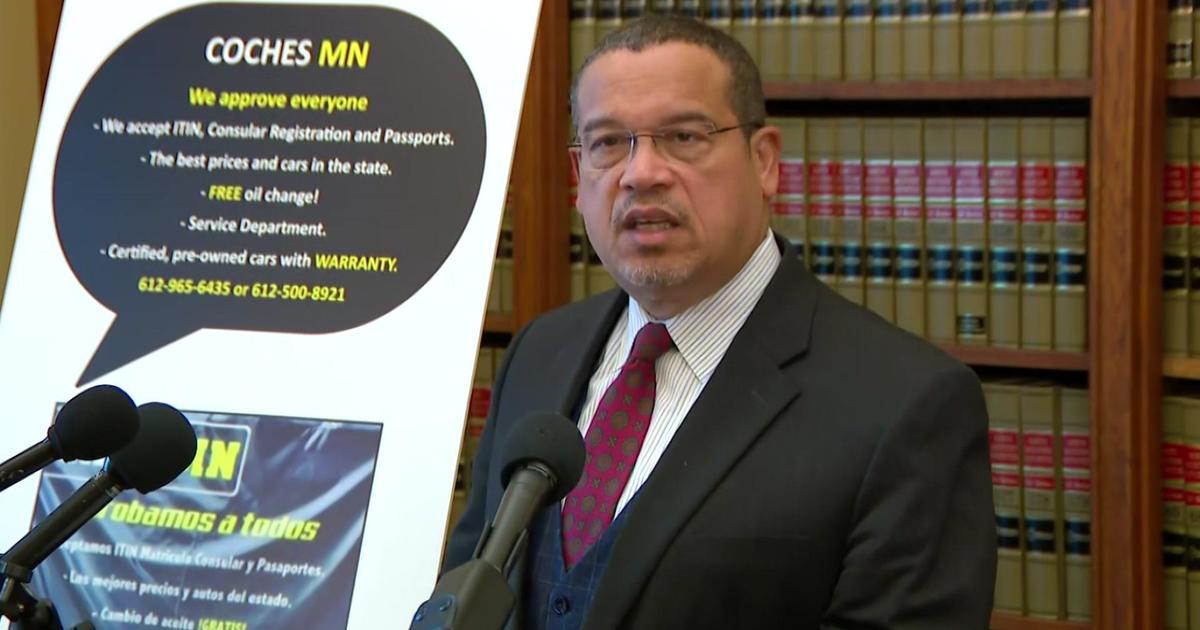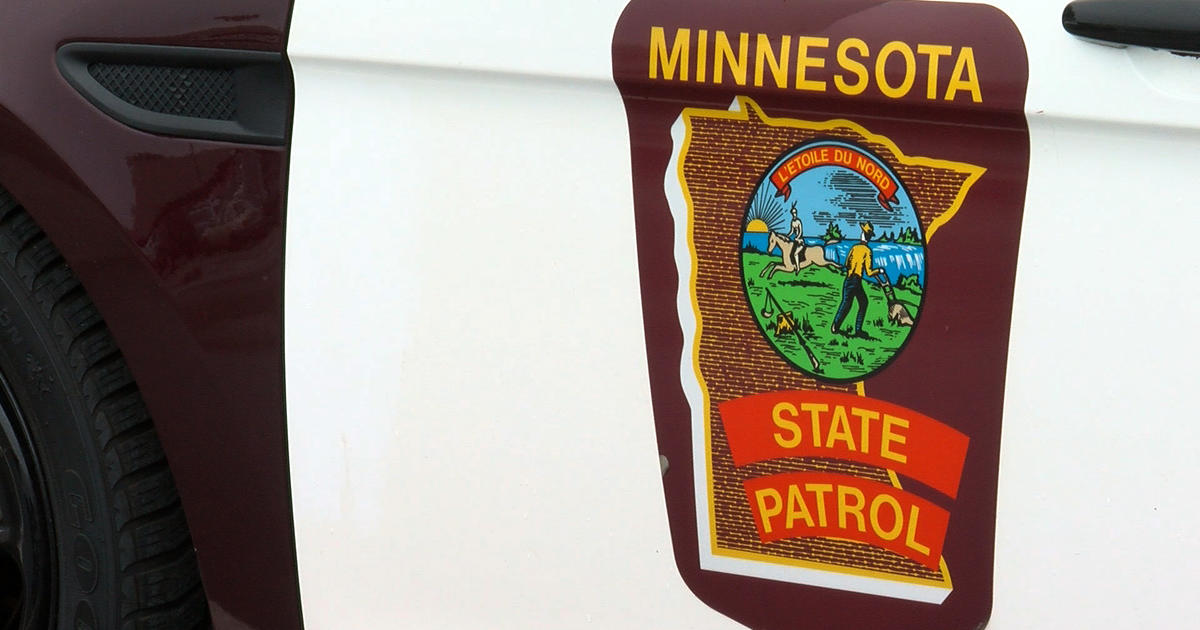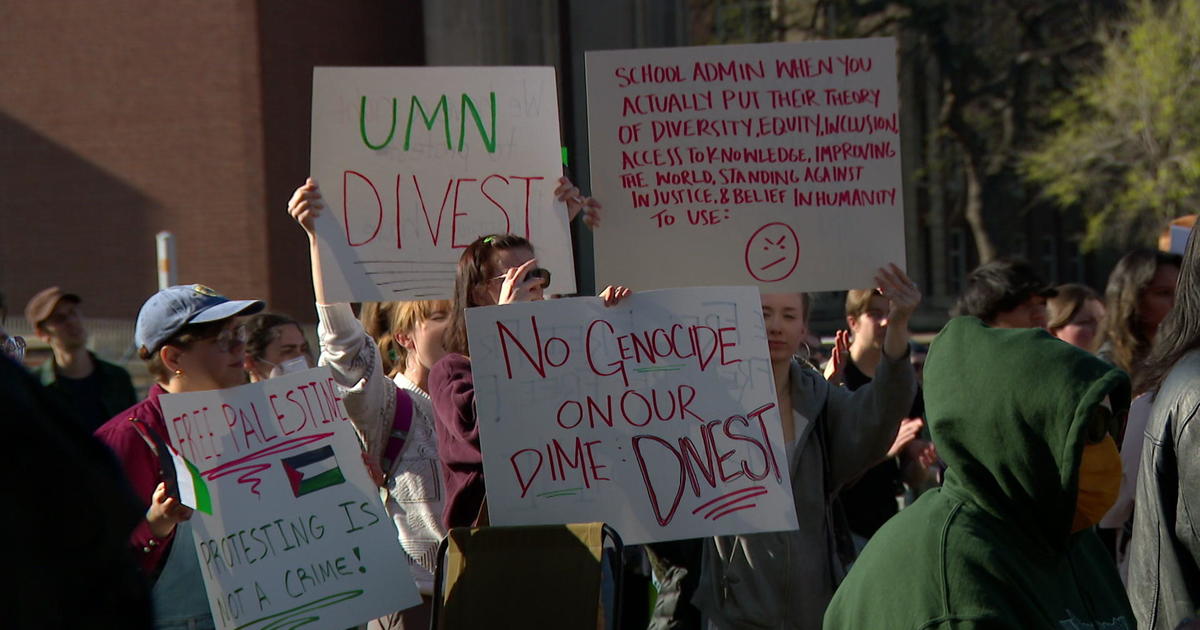Vikings' Contribution To Stadium At Issue In Minn.
ST. PAUL, Minn. (AP) — Minnesota lawmakers working out a final Vikings stadium bill must decide how much money the team should put into the $975 million proposal.
Both the House and Senate were standing by Wednesday for the final product of a conference committee that by late afternoon had yet to meet.
The Vikings were closer than ever to a replacement for the 30-year-old Metrodome, but big hurdles remained. Both the House and Senate this week passed bills raising the team's $427 million contribution — by $105 million in the House, $25 million in the Senate.
Throughout the franchise's latest push for a publicly subsidized football stadium, team executives insisted they wouldn't pay more. The $427 million figure was "set in stone," Vikings Vice President Lester Bagley said as recently as last week.
But in convincing votes, lawmakers went on record demanding that the Vikings and private partners foot a bigger share of construction costs. It's part of a broader skirmish over how much, if any, tax money should benefit a private enterprise owned by wealthy New Jersey developer Zygi Wilf.
Emerging from a closed-door meeting Wednesday, Republican House Speaker Kurt Zellers said he hasn't spoken to the Vikings about the level of their stadium contribution and said it was "partially up to them to decide" whether to chip in more.
"The Vikings didn't get whatever they wanted," said GOP Sen. Julie Rosen, the bill's chief sponsor. She said the team will have to come up with more to come away successful.
A final bill would need to pass both the House and Senate before going to Gov. Mark Dayton, a strong stadium booster who would presumably sign it. Then it would be up to the Vikings whether to accept the deal.
Conference committee members, legislative leaders and Dayton administration officials spent hours Wednesday behind closed doors in multiple simultaneous meetings. They were careful to avoid bringing together a quorum of conference committee members that would trigger a state law requiring legislative meetings to be conducted in public. They revealed little about the discussions.
Rep. Morrie Lanning, the bill's House sponsor, said he was "not in a position to comment" when he stepped out of one meeting. A few hours later, Ted Mondale, Dayton's chief stadium negotiator, also declined to talk.
"We're playing some cards," he told TV cameramen and reporters as he walked by.
Stadium backers risk losing some of their votes if the final resolution drags out. Two House members who voted yes on the bill — Reps. Greg Davids, R-Preston, and John Kriesel, R-Cottage Grove — both were to leave town Thursday on trips planned before the Legislature missed a self-imposed April deadline to finish the session.
As for the team's contribution, Wilf won't be cutting a personal check — at least not for most of it. The team expects to tap into an NFL loan program for as much as $200 million. It could also cash in on naming rights, sell seat licenses and leverage other new revenue streams from a state-of-the art-stadium.
Following Tuesday's Senate vote, Bagley said the team is standing by the amount it pledged earlier, but he acknowledged the final package is "to be determined."
The Vikings say their costs go beyond the upfront contribution. Officials note that they will pay annual rent and help defray operating costs of the building, which a public authority would also rent out for concerts, conventions, monster truck pulls and other activities.
The Senate added a new dynamic by adopting user fees on suites, parking and Vikings merchandise. The state would impose a 10 percent fee on suites and parking within a half-mile of the stadium, and a 6.875 percent fee on Vikings clothing, trading cards and other memorabilia.
It's all meant to soothe concerns of lawmakers about a gambling expansion pegged to retire public debt. The stadium bill contemplates tens of millions of tax dollars from new electronic pull-tab and bingo games in bars and restaurants. The robust estimates have drawn plenty of skepticism.
Another $150 million will come from a redirected sales tax in Minneapolis, where the new stadium would be built.
The current Vikings stadium plan would be the third priciest in football, behind recently built facilities in Dallas and New York. The public contribution by percentage could still shift, but in all likelihood a Minnesota subsidy would cover between 40 and 50 percent of construction.
That would put the Vikings package somewhere in the middle of NFL projects over the past dozen years.
In Cleveland, for instance, the Browns' $290 million stadium opened in 1999 after three-quarters was financed by taxpayers. The gleaming Giants and Jets $1.6 billion stadium was built entirely with private funds.
The possibility the Vikings could move added an element of pressure to the current deliberations. NFL Commissioner Roger Goodell has personally lobbied Minnesota leaders to pass a stadium plan, and chatter about efforts in Los Angeles to nab a team is rampant.
(© Copyright 2012 The Associated Press. All Rights Reserved. This material may not be published, broadcast, rewritten or redistributed.)



